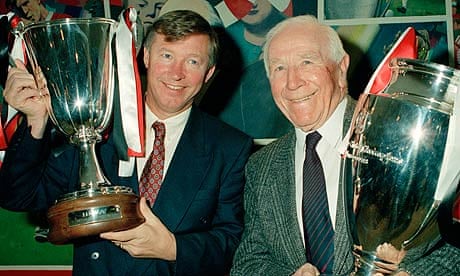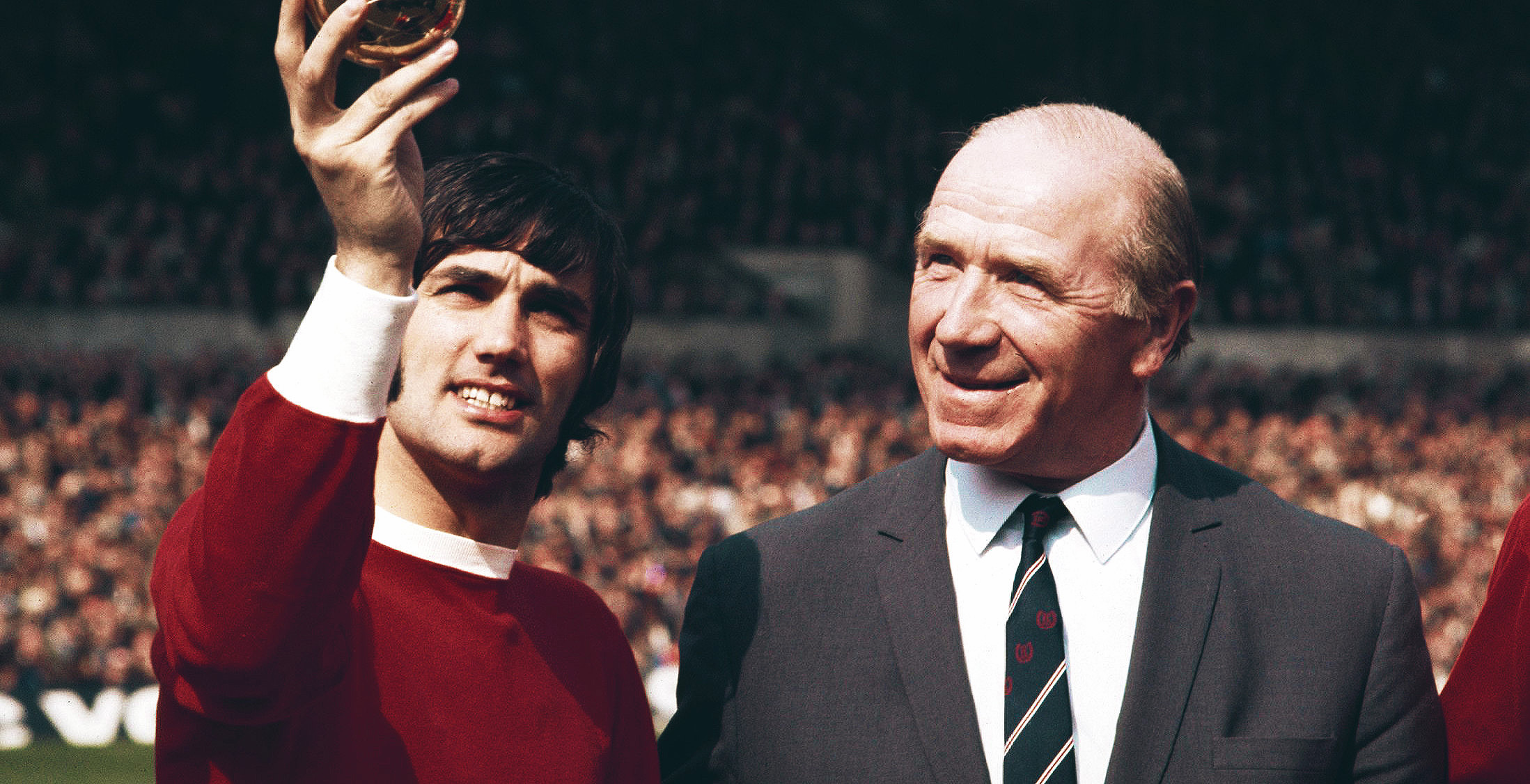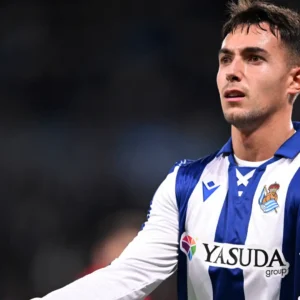Just outside of Manchester United’s Old Trafford football ground, there is a 420 metres stretch that runs from Chester Road to Trafford Park Road. On matchdays, this stretch becomes isolated from the rest of Manchester with no vehicles allowed, only pedestrians. A walk down the road will lead you to an iconic stadium standing tall in all of its glories. And just in front of that, a smiling bronze figure of a suited man with a football in hand overseeing the entrance like a guardian angel. The inscription on the plinth says “SIR MATT BUSBY”. The sign at the entrance to the 420-metre stretch of the road reads ” -> Sir Matt Busby Way”. Not Sir Matt Busby Street, not Sir Matt Busby Road. It’s Sir Matt Busby Way, the Manchester United way, the way of pedestrians, the way of the working class.
It’s the way a little boy from Scotland who dreamt of becoming a professional football player but lost his father at the age of 8 and was destined to become a coal mine worker in the USA when he was 18. However, the immigration with his mother to America got delayed by 9 months due to paperwork processing time. Somehow, in those 9 months, he got a full-time mining job in Scotland and also made quite a name for himself while playing part-time at Scottish youth side Denny Hibs.

Most amazingly, signed for a Manchester City side that was going to play in Top division next season. In City, Busby proved his talent with some stunning performances as a half-back (the then designation for midfielders). United tried to sign him but could not afford the £150 asking fee. Busby won an FA Cup with City before moving to Liverpool. He soon cemented his place in the starting 11. The midfield line of Matt Busby, Jimmy Mcdougall and Tom Bradshaw is still today considered to be one of the very best midfield lineups Liverpool have ever had. The second world war brought an unfortunate jitter to his playing career like the others of that time and robbed him of possibly some more trophies as a player.
This world war break brought something more significant. He signed for national service. That included serving as a football coach in the Army Physical Training Corps. This experience helped him form his principles about being a manager. Apart from overseeing training policies and training, this also included having the final say on player transfers and team selection. It was unthinkable in English club structure at that level. The same became evident during a short Assistant manager stint at Liverpool and their paths split. Ultimately, Busby ended up signing at Manchester United in February 1945. As a player, united could not sign him but as a manager, they agreed to all his demands leading to a revolutionary deal of 5 years that saw a football manager get the ultimate control of a team for the very first time. This part of Busby isn’t talked about often but this was nothing short of a revolution.
United finished as runners-up in the league from 1947-1949, winning the FA Cup in 1948. The league win came in 1952 before another runners-up finish in 1951. For a club in the ping-pong game of promotion and relegation for a long time, this was an unprecedented spell of success. An ageing side now needed major overhauling. Busby didn’t misuse his authority and success and go for the easy way of buying expensive established players. Instead, he leveraged his success to give opportunities to new young players, including Duncan Edwards, who would have become one of England’s all-time finest if not for the Munich Tragedy.

The “Busby Babes” took time to reach their potential but when they did, there was no stopping them. They won the league in 1956 and 1957 before disaster struck in the form of the infamous Munich Air Tragedy in 1958. In the most difficult time of his life, Busby was convinced by the club officials to carry on with his managerial role in honour of those who could not make it. Five years later, the rebuilt United team found success again, in the form of 1963 FA Cup. They won the league in 1965 and 1967. The biggest trophy of them all – the European Cup came in 1968. After a two-decades-long successful spell, Busby retired the next season and served the club later as Director and eventually as President.
A legendary player at Liverpool and Manchester City, a legendary manager at Manchester United – Sir Matt Busby was a figure much-adorned in the traditional English football powerhouses and the whole of the city of Manchester. A tough childhood, an unfortunate World War interruption, differences regarding managerial authority, a devastating and painful plane crash – Sir Busby has seen everything falling around him from time to time, picked up the pieces, gathered the others in shock and rallied them forward and in that process, he has become immortal – a working-class hero, a myth, a legend.






